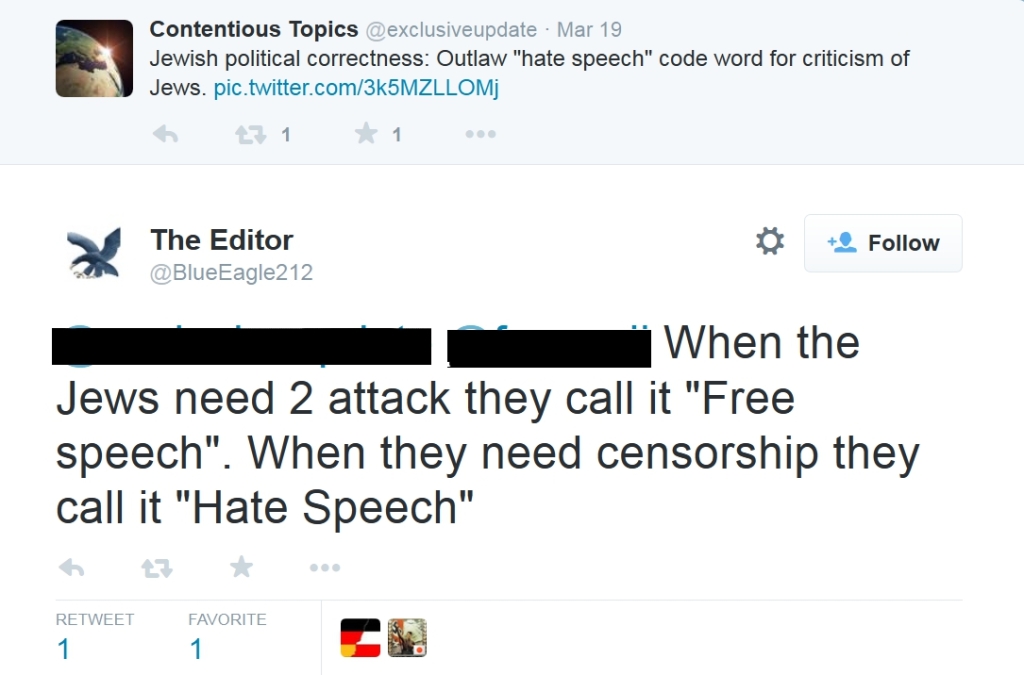Originally published as: OHPI, Spotlight on Antisemitism – Illuminating the nature of hate, March 31, 2015, The Big Smoke, http://thebigsmoke.com.au/2015/03/31/spotlight-antisemitism-illuminating-nature-hate/
The recent terrorist attacks in Europe targeting Jewish establishments have brought the issue of proliferating antisemitism across the Internet into highlight, and specifically the social media platforms that are used to take antisemitic lies, canards and conspiracy theories from fringe neo-Nazi and other extremist groups to mainstream society.
Since early 2009, the CEO of the Online Hate Prevention Institute (OHPI), Dr Andre Oboler, has been warning of the dangers of online antisemitism. At that time, social media was being hailed as the harbinger of positive change. The catch cry was innovation and that nothing should stand in the way of technological progress. The dark side of social media was still largely unrecognised, even by experts.
Today there is a growing emphasis on the responsibility social media platforms have to society at large. Recently, the French government lead a delegation to Silicon Valley calling for stricter regulation of content on large social media platforms. We do not know how successful the delegation was. Facebook, for one, certainly felt enough pressure to clarify its community standards last week, better explaining its view on hate speech and how it monitors such.
Critically, this year the Global Forum for Combating Antisemitism (GFCA) – a bi-annual international conference to examine the state of antisemitism worldwide and build effective responses – is focusing on the role of the Internet and social media in spreading hate against Jews. OHPI are compiling a report on antisemitism in social media for this important gathering.
We believe that good policy is founded on evidence-based research. Effective countermeasures to rising antisemitism need to be based on real evidence, whether the response takes the form of counter-speech or demands for better monitoring and faster removals of hate content by social media platforms. We need to gather and analyse data from these platforms to understand the messages and the nature and origins of online hate speech.
All through March, the OHPI has been managing an international campaign “Spotlight on Antisemitism“, gathering user-submitted reports of online antisemitism on the world’s three largest social media platforms: Facebook, Twitter and YouTube. The reports are gathered using our online hate reporting tool, fightagainsthate.com – a crowd-based tool collecting examples of online hate speech that was launched by The Hon. Paul Fletcher MP in December 2014.
Any user can enter a hyperlink of content on Facebook, YouTube or Twitter and report it to fightagainsthate.com as hate speech, which is available online despite reporting to the platform. In the case of antisemitic hate speech, it asks the user to further categorise it into the following subcategories:
- Promoting Violence Against Jews
- Holocaust Denial
- Classic Antisemitism (not-Israel related)
- New Antisemitism (Israel-related)
We are using the crowd to gather and categorise antisemitic content, which we will then verify for accuracy. Our aim is to collect a huge cross-section of anti-Semitic content currently being shared on social media. Our report will include examples from the different categories to illustrate the nature of such content. By presenting the data, we hope to highlight the practical shortcomings in the current responses to hate speech, where some of this content has remained online for years.
We urge everyone to join this campaign. We can also use it as a model for tackling other forms of online hate that also populate the social media. We are currently preparing plans to run a similar campaign tackling anti-Muslim hate in the second half of this year.
With the help of volunteers, we have already collected over 1500 unique items of anti-Semitic speech from the three platforms. With your help we can gather many more. The content submitted so far includes classic antisemitism, such as conspiracy theories claiming Jews control the media, governments or the banks, and also classic antisemitism, such as calling for Jews to be attacked or killed. New antisemitism denies Jews the right to self-determination, not arguing against Israeli policies but rather against the very existence of the state – no other state has its very existence attacked in this way. And there is Holocaust denial and content mocking the victims of the Holocaust.
This content must be found, reported, and removed. Join our campaign and be a part of the global effort to shine a spotlight on antisemitism.
Here are some shocking examples of the kind of hate speech we have collected so far….

